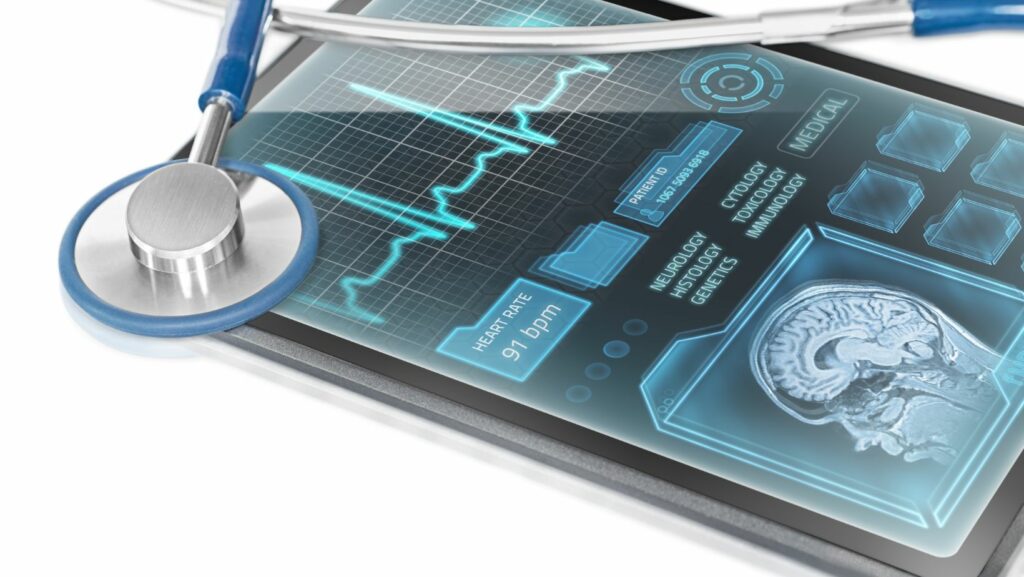From electronic health records to wearable devices, vast amounts of data are being generated every second. When analyzed effectively, this data can reveal critical insights into disease patterns, treatment efficacy, and patient behavior. As a result, healthcare organizations are increasingly investing in advanced analytics tools to stay ahead in a competitive market and deliver personalized care.
Data Analytics Healthcare
Data analytics offers numerous benefits in healthcare, driving better outcomes across various aspects of the industry.
Improved Patient Care
Analyzing patient data helps personalize treatments and predict outcomes. Physicians can track patient progress in real-time using data from electronic health records (EHRs), reducing the risk of complications. Data analysis also aids in identifying high-risk patients and implementing preventive care measures. For example, hospitals have used predictive analytics to reduce readmission rates by targeting patients who need follow-up care.
Cost Reduction
Data analytics aids in identifying inefficiencies in healthcare operations, which helps reduce costs. Analyzing resource utilization data assists hospitals in optimizing staffing and equipment usage. Moreover, predictive analytics can forecast patient admissions, allowing better resource allocation.
For instance, analytics tools have enabled some healthcare providers to cut operational costs by up to 25% by streamlining supply chain management.
Enhanced Diagnosis Accuracy
Leveraging data from various sources, including imaging and lab results, improves diagnostic precision. Machine learning algorithms detect patterns that may be missed by human evaluation, increasing diagnosis accuracy. These tools also support quicker diagnoses by automating part of the analysis process. An example includes the use of AI in radiology to identify abnormalities in imaging scans, often with higher accuracy and speed than traditional methods.
Challenges In Implementing Data Analytics
Despite its benefits, implementing data analytics in healthcare presents several challenges that must be addressed to enhance adoption and effectiveness.
Data Privacy Concerns
Data privacy remains a significant barrier in healthcare analytics. Patient data is highly sensitive, and any breach can have severe consequences. Adhering to regulations like HIPAA (Health Insurance Portability and Accountability Act) and ensuring that patient data is anonymized and securely stored is essential. Advanced encryption techniques and robust access controls are crucial to mitigating these privacy concerns.
Integration With Legacy Systems
Integrating data analytics with existing legacy systems in healthcare is complex. Many healthcare providers rely on outdated technology infrastructure, which often lacks interoperability. Modern analytics systems must seamlessly interface with electronic health records and other legacy databases. This requires robust middleware solutions and standardized data formats to ensure compatibility and streamline data flow.
Skilled Workforce Shortage

The shortage of skilled professionals in data analytics poses a significant challenge. Healthcare organizations need data scientists, analysts, and IT experts to effectively manage and interpret the vast amounts of data generated. Training existing staff and attracting new talent with expertise in healthcare data analytics is critical for leveraging data to improve patient outcomes and operational efficiency.
Real-World Applications Of Data Analytics
Data analytics is revolutionizing healthcare with practical applications that improve patient outcomes, efficiency, and personalized care.
Predictive Analytics
Predictive analytics enables healthcare providers to anticipate patient health issues based on historical data. By analyzing trends from electronic health records (EHRs) and wearable devices, they can predict disease outbreaks, understand patient risk factors, and proactively manage chronic conditions. Hospitals utilize these insights to reduce readmission rates and enhance preventive care strategies.
Population Health Management
Population health management uses data analytics to analyze health trends within specific populations. Aggregating data from multiple sources, healthcare organizations identify at-risk groups and create targeted intervention programs. Real-time data helps monitor public health metrics, track disease progression, and allocate resources efficiently.
Personalized Medicine
Personalized medicine tailors treatments to individual genetic profiles using data analytics. Analyzing genetic information alongside patient history allows for bespoke treatment plans that improve efficacy and reduce adverse effects. Machine learning algorithms support identifying biomarkers for certain diseases, leading to earlier diagnosis and targeted therapies.
 Future Trends In Data Analytics Healthcare
Future Trends In Data Analytics Healthcare
The future of data analytics in healthcare looks promising, with advancements in artificial intelligence and machine learning driving innovation. Predictive analytics will become more sophisticated, enabling even earlier detection of diseases and more precise interventions.
Blockchain technology is expected to enhance data security, addressing privacy concerns and ensuring compliance with regulations. Additionally, the integration of Internet of Things (IoT) devices will provide real-time health monitoring, offering deeper insights into patient health and facilitating timely medical responses.


